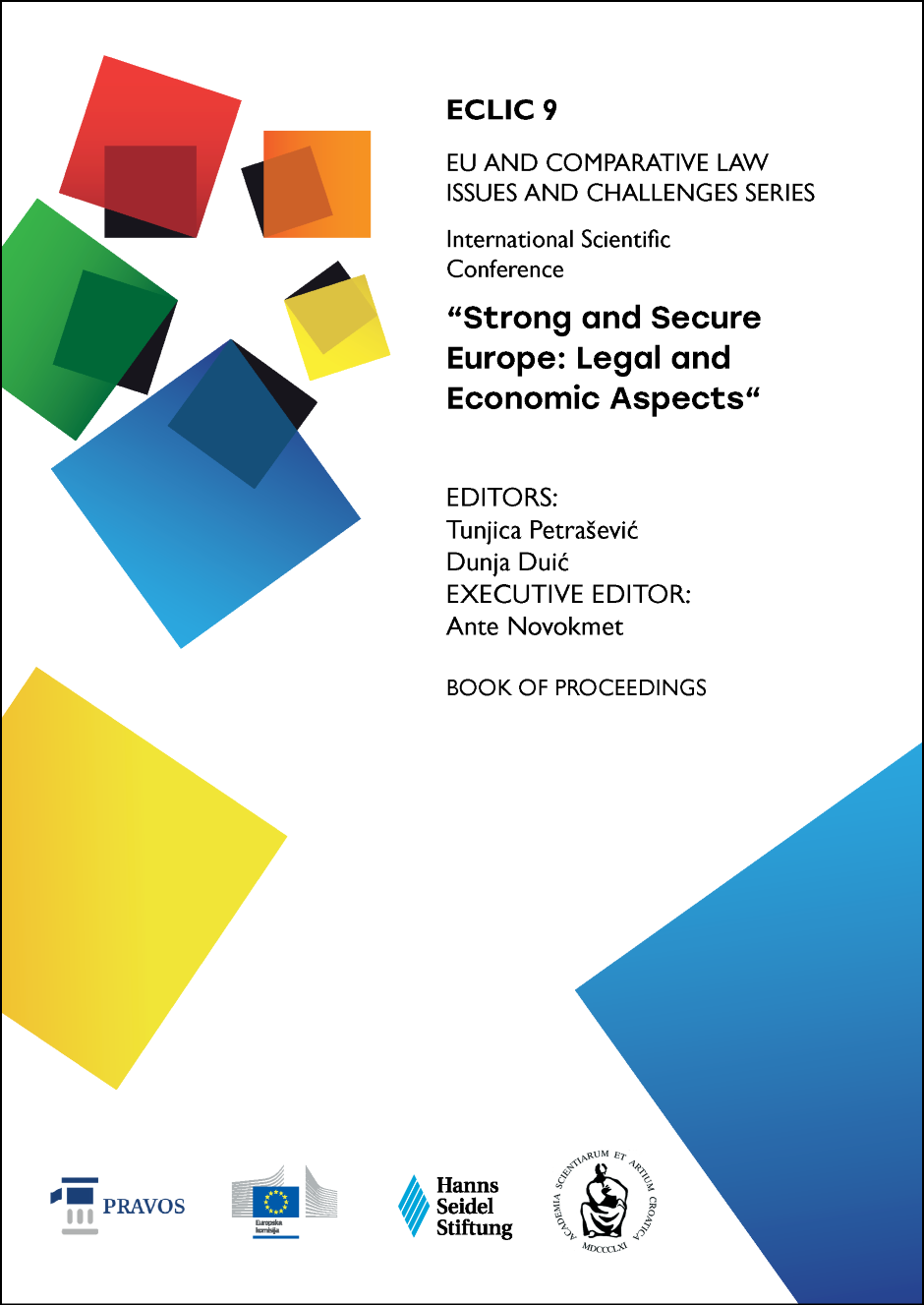LINKING EU STRATEGIC GOALS WITH NATIONAL BUDGETS
INSIGHTS FROM SLOVENIA
DOI:
https://doi.org/10.25234/eclic/38138Abstract
With the development of the European Union as a political community, also its public finances and fiscal policies have gradually taken shape and developed. The research focuses on the period from 2020 to 2025 and seeks to answer the question of whether and how the European Union’s economic governance system ensures that its strategic goals and priorities are reflected in the Member States’ strategic and budgetary planning, and what new developments in this respect have been brought about in 2024 and 2025 by the fiscal rules reform, the new composition of the European Parliament and the European Commission, as well as by the substantially changed geopolitical and economic situation and increased security risks. The research is based on empirical and qualitative research methods. The results of the research analysis shows that the European Union’s economic and fiscal governance system has linked its strategic goals to national budgetary and reform policies and has responded to changing circumstances through ad hoc emergency instruments such as the fiscal escape clause and the Recovery and Resilience Facility. In particular, the 2024 reform of the European Union’s fiscal rules, and changes in the geopolitical and security situation, have brought about greater flexibility and individualisation in the coordination of fiscal policy when dealing with Member States according to their characteristics. The findings of the research indicate the start of a new, broader reform of the economic governance of the European Union, which will allow sustainable adjustments of the European Union to changing geopolitical circumstances and security challenges. While the Republic of Slovenia has kept pace with the European Union’s objectives in terms of economic and fiscal governance, it has been less successful in achieving its national goals. Between 2020 and 2025, the transition from national strategic to budgetary planning in the Republic of Slovenia remained incomplete.
Downloads
Published
Issue
Section
License
Copyright (c) 2025 Aljanka Klajnšek

This work is licensed under a Creative Commons Attribution-NonCommercial 4.0 International License.
Authors retain the copyright on the papers published in the Journal, but grant the right of first publication to the Journal. Papers accepted for publication or already published in ECLIC of the Faculty of Law in Osijek may be published by the author(s) in other publications only with proper notice of its previous publication in ECLIC.


